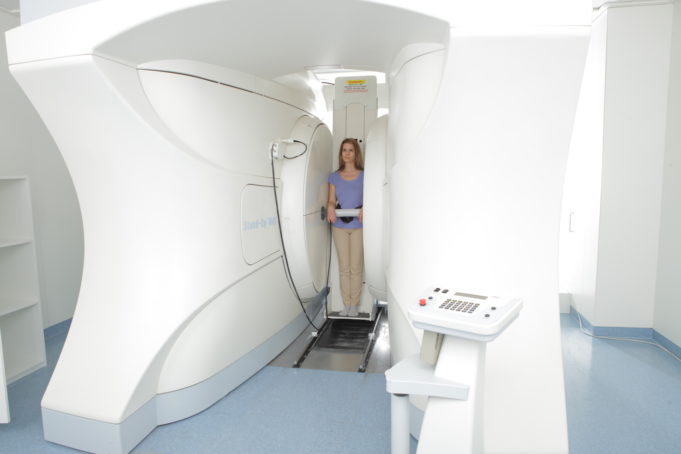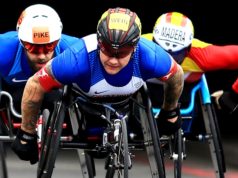If you’ve picked up an injury while running or when engaged in your fitness activity – or even had concussion while playing sport, you may be required to have an MRI. Upright Open MRI scans are not routinely offered in the NHS or even privately but they offer consultants and their patients a better view when the joint, spine or neck is put under natural weight-bearing pressure.
This is performed either standing up, sitting down or in a specific sports posture, such as, flexing the neck, crouching or twisting– allowing the scan to be carried out in exactly the position that pain is experienced. All coils (antennae), even the head coils for brain scans, are designed to allow the patient to sit upright and clearly see outside the system so removing feelings of claustrophobia.
So, why is this type of scan not offered more routinely especially when it is available to all NHS, health-insured and self-pay patients?
It would appear that the answer to this is simply that very few consultants know about it and rely on traditional MRI scanners where patients are scanned lying down. Traditional MRI scanners require patients to slide into a narrow tunnel or tube which many people find uncomfortably hemmed-in, cramped and can induce anxiety or panic. Importantly, showing joints and the spine in natural weight-bearing positions such as sitting, standing, crouching, twisting is simply not possible.
Indeed, some conditions may be underestimated or may not even be seen at all in a traditional tunnel MRI scanner.
For claustrophobic patients, even an ‘open’ MRI scanner still requires you to endure the machine very close to your face as you have to lie between two magnetic poles, often referred to as a ‘double doughnut’ format. The distance between the upper and lower poles varies, but is typically only around 38– – 43 cm – and you would still have the upper part of the scanner directly in front of your face, as the system is only open at the sides.
Medserena Upright Open MRI centres in London and Manchester offer patients a state-of-the-art MRI examination that even allows you to watch TV or DVD, on a large screen while your scan progresses.
The staff at Medserena Upright MRI Centres are also specially trained in dealing with claustrophobic patients. And, if required, a relative or friend can stay with the patient in the room.
With increased awareness many more patients will benefit from this type of scan. Some will have had a conventional MRI scan but their condition may not have been properly diagnosed and they still suffer from pain. And others will be claustrophobic or anxious about the idea of going through an MRI ‘tunnel’.
Further info: https://www.back-pain-mri.com and https://www.fear-of-mri.com








